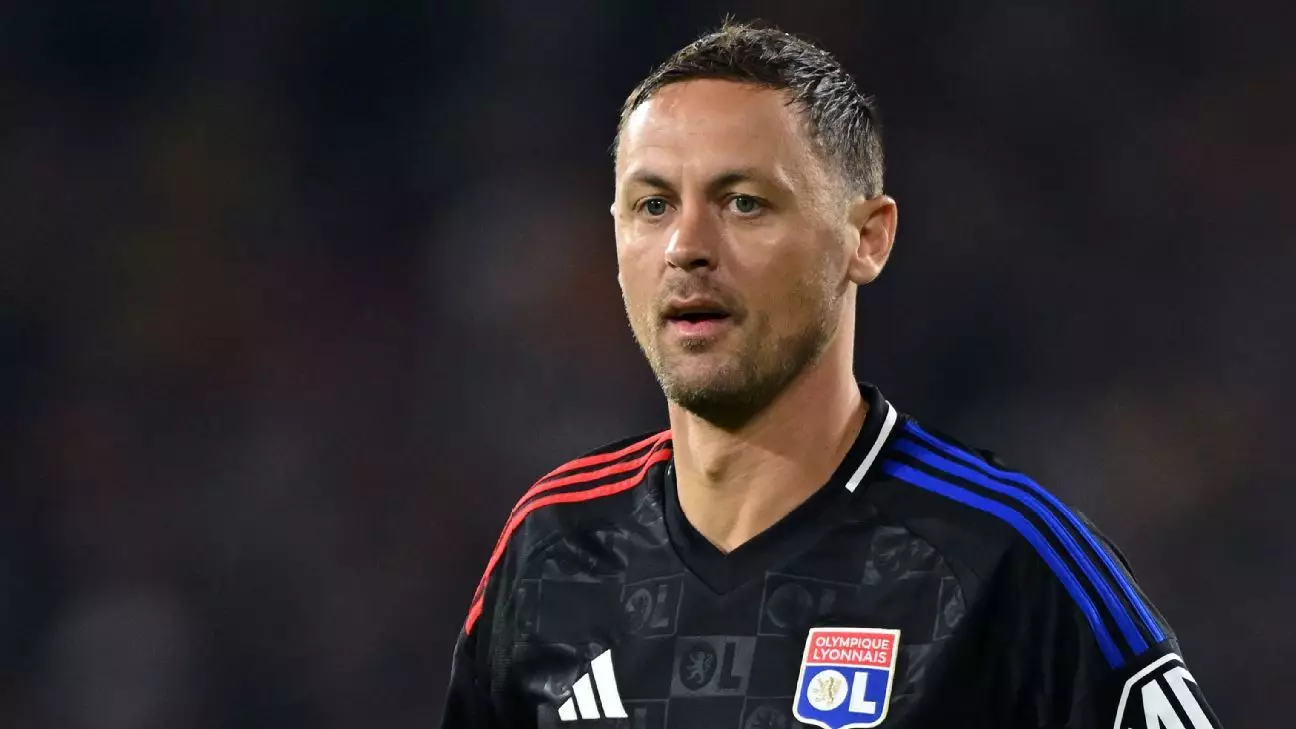The world of football is often characterized by fiery rivalries, both on and off the pitch. Recently, a particularly provocative exchange took place between Manchester United’s goalkeeper André Onana and former Red Devil Nemanja Matić, now with Lyon. The verbal sparring not only highlights the tensions surrounding their impending Europa League quarterfinal but also reveals deeper narratives of legacy, performance, and the weight of expectation in top-flight football.
The Fallout of a Bold Claim
When Onana boldly declared that Manchester United are “way better” than Lyon, it wasn’t merely a statement of confidence; it was a flame-throwing challenge that could ignite a match already charged with historical significance. However, Matić, who spent five years at Old Trafford without lifting any silverware, struck back vehemently, branding Onana “one of the worst goalkeepers in United’s history.” The gravity of such a statement cannot be overstated; it speaks to both the pressures of playing for a club steeped in tradition and the often brutal reality of maintaining performance standards.
The crux of the argument is not solely based on prowess but rather the history and expectations that both players carry with them. While Onana attempts to elevate his status through bravado, Matić’s response forces us to reevaluate the criteria by which we judge talent and success in football. What does it mean when you are lifted by the greatness of a club yet fail to create your own legacy?
Analyzing the Goalkeeping Debate
What stands out in this exchange is the valid concern Matić raises about Onana’s performance. Since his arrival from Inter Milan, Onana has suffered numerous criticisms for inconsistent displays. Such fluctuations in form raise doubts about his ability to shoulder the responsibilities at a club where goalkeeping legends like Peter Schmeichel and Edwin van der Sar once reigned supreme. These historical comparisons reveal the heavy burden Onana carries, often thrusting him into the spotlight under unfavorable scrutiny.
Matić’s assertion that “you need to have cover to say something like that” is a powerful reminder of the high stakes in professional football. Being laced with statistics that deem Onana one of the worst goalkeepers in Manchester United’s modern era places an irrefutable tag on his abilities, highlighting the delicate balance between confidence and reality.
The Pressure of Expectations
Yet, what of Onana’s retort? By showcasing his trophy-laden past, he aimed to demonstrate resilience against adversity. While it’s commendable that he has the FA Cup under his belt, such accolades may fall short in the judgment of fans and critics during challenging times like these. Winning trophies does not solely equate to individual greatness; it also encompasses responsibility and trustworthiness, qualities that seem to be called into question at this juncture.
This rivalry serves as a microcosm of a broader narrative in football, where the emotions are raw, the stakes are high, and legacies are forged in the fires of competition. The dialogue between Onana and Matić not only elevates the impending match but also forces fans to confront the nuances of what it means to be “better.” It’s a reflective moment that resonates with anyone engaged in the beauty and brutality of sport. Therein lies the complexity and allure of football—an intricate tapestry of human ambition, frailty, and the incessant search for validation.

